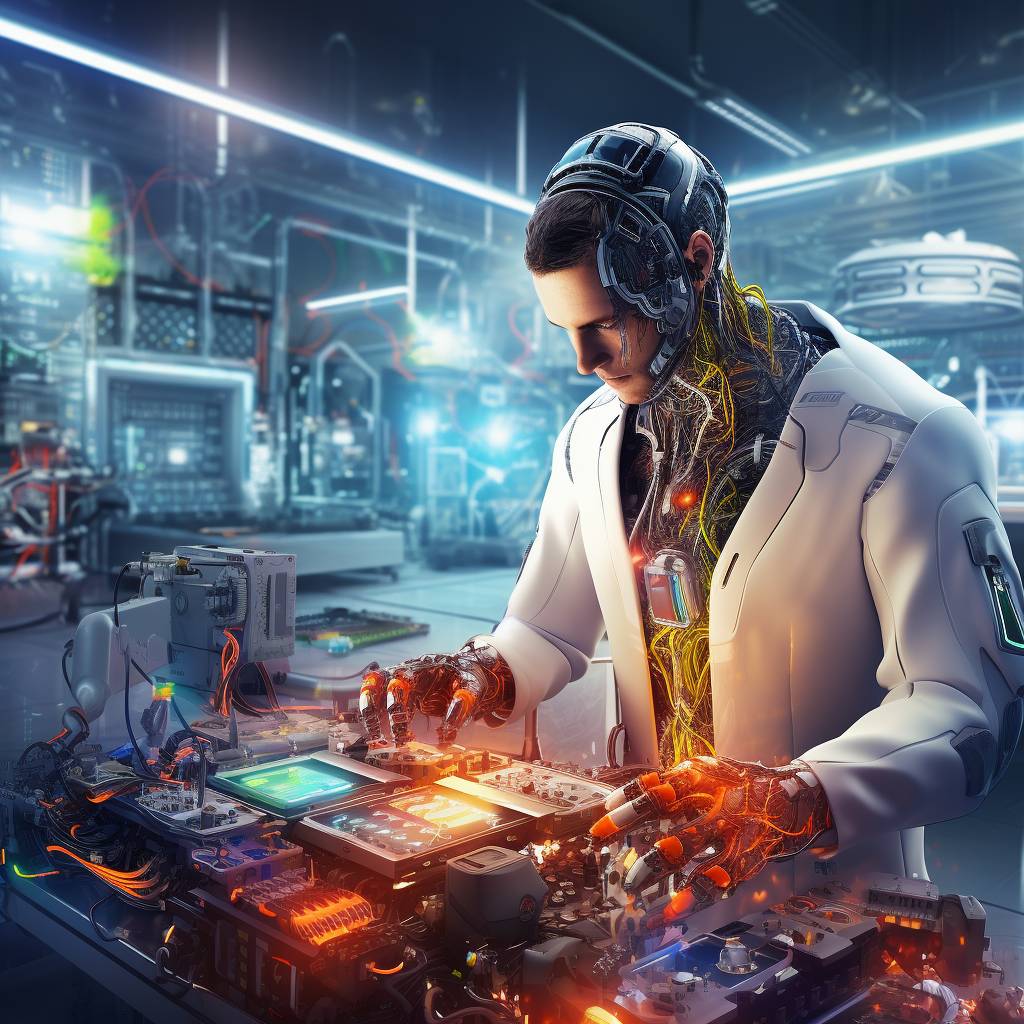Artificial Intelligence (AI) is no longer a futuristic concept, but a present reality that has permeated almost every aspect of our daily lives. It has become a crucial component in various sectors, and electrical engineering is no exception. As a discipline that delves into the study and application of electricity, electronics, and electromagnetism, electrical engineering is continually evolving with the rapid pace of technological advancements. This constant evolution brings with it intricate challenges that need innovative solutions, and AI has emerged as a powerful tool to address these issues.
AI, a subset of computer science, focuses on creating intelligent machines that are capable of learning and problem-solving. When applied to electrical engineering, AI’s capabilities have proven transformative, enabling engineers to approach complex problems with heightened efficiency and precision. The incorporation of AI in electrical engineering has resulted in significant enhancements in various facets of the field, including power systems, electronics, communication systems, and control systems.
One of the most notable impacts of AI in electrical engineering is its contribution to power systems. The modern power grid is a sophisticated and interconnected network that demands constant monitoring and control to maintain stability and reliability. AI has been pivotal in developing advanced tools for power system analysis, optimization, and control. For example, AI-based algorithms have been instrumental in predicting equipment failures, optimizing power generation and distribution, and identifying anomalies in the power grid. These AI-driven solutions not only boost the overall efficiency of the power system but also aid in averting blackouts and other disastrous events.
In the realm of electronics, AI has been utilized to design and optimize electronic circuits and systems. AI-powered tools can process vast amounts of data and recognize patterns that might escape human engineers, leading to more efficient and reliable electronic devices. For instance, AI algorithms have been employed to optimize the design of integrated circuits, leading to reduced power consumption and enhanced performance. Moreover, AI has been harnessed in the development of advanced sensors and actuators, facilitating more accurate control and monitoring of electronic systems.
The integration of AI has also been beneficial for communication systems. With the rising demand for high-speed and reliable communication networks, AI has been employed to develop advanced signal processing techniques and optimize network performance. AI-driven algorithms can process extensive data from communication networks, identify patterns and trends, and make predictions about network performance. This data can then be used to optimize network configurations, improve resource allocation, and enhance overall network performance.
Control systems, which are integral to various industries such as aerospace, automotive, and manufacturing, have also witnessed significant enhancements with the incorporation of AI. AI-based control algorithms can adapt to their environment and learn from it, resulting in more efficient and robust control systems. For instance, AI has been used to develop advanced control strategies for autonomous vehicles, enabling them to navigate complex environments and make real-time decisions based on sensor data.
In summary, the marriage of AI and electrical engineering has proven to be an effective solution for tackling complex problems across various aspects of the field. By harnessing the power of AI algorithms and techniques, electrical engineers can address intricate challenges with greater efficiency and precision. This has led to significant advancements in power systems, electronics, communication systems, and control systems. As AI continues to evolve and become more sophisticated, its role in electrical engineering is expected to expand further, leading to even more innovative solutions and applications. The integration of AI in electrical engineering not only showcases the potential of artificial intelligence but also exemplifies how technology can be leveraged to solve some of the most complex problems faced by modern society.
